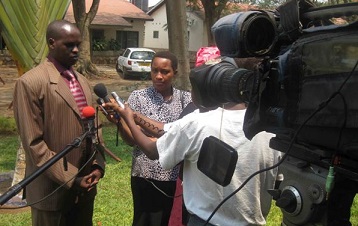Project
Appui à la participation politique et citoyenne de la femme dans le processus démocratique au Burundi
- Burundi
- November 2011
The goal of the project was to increase and strengthen political participation and citizenship among women within democratically elected institutions before, during, and after the election process of 2010. The underlying idea was to make use of this election period as a timeframe allowing for public debate in order to raise awareness among influential parties, such as the media and women leaders, of their rights in order to better know and to assert these rights by creating a National Forum.
Lessons from Project
💡
- Women's empowerment
- Burundi
- November 2011
The National Forum remains merely a well-intentioned document, and there is no environment for political dialogue between women leaders from across the board. None of the project elements led to the drafting of a policy promoting women. The signing and ratification of a legislative text remain wishful thinking. The report written by female observers was not circulated. The documentary that was made in four of the Northern provinces has never been shown and remains to this day in a desk drawer in the association.

💡
- Women's empowerment
- Burundi
- November 2011
The theoretical content of the training sessions, which were carried out almost exclusively in French even though women in rural zones rarely speak anything other than Kirundi, meant that the needs of the beneficiaries could not be efficiently met.
💡
- Women's empowerment
- Burundi
- November 2011
Although all planned activities were carried out, three unplanned activities were undertaken and the project was able to reach a large number of women, none of the expected goals were achieved. The grantee opted for an all-encompassing approach, rather than a more rigorous approach which would have contributed to the final objective. Beneficiaries were identified via a system of suggestions coming from the three regions without there being any kind of control mechanism in place and women leaders could not be efficiently identified. There is no indication of women leaders having been identified in all 17 provinces and thereby covering the whole country
💡
- Women's empowerment
- Burundi
- November 2011
During the elections, Burundian civil society actors coordinated among themselves, to make their voice more credible and coherent when dealing with public authorities. However, the grantee isolated itself from the activities being undertaken by the platform of these CSOs, considerably weakening the relevance of the project as a whole.
💡
- Women's empowerment
- Burundi
- November 2011
The grantee was unaware of the impact the political parties have on the alleged independence of candidates, representatives and leaders in the administration. The evaluation revealed that the true impact of women leaders within the political parties relied mainly on co-operation and loyalty to leading figures.
💡
- Women's empowerment
- Burundi
- November 2011
The project was closely linked to the 2010 electoral challenges in Burundi to encourage women to vote and to stand for election. The election process, with a mandatory quota of 30% female representatives within institutions, was an important lever to generate collective awareness among all these leaders and shapers of opinion. This project also went beyond the elections by suggesting the creation of a National Forum for dialogue, allowing women leaders to overcome political differences and to exchange ideas on priorities to be implemented in order to improve the living conditions of Burundian women.